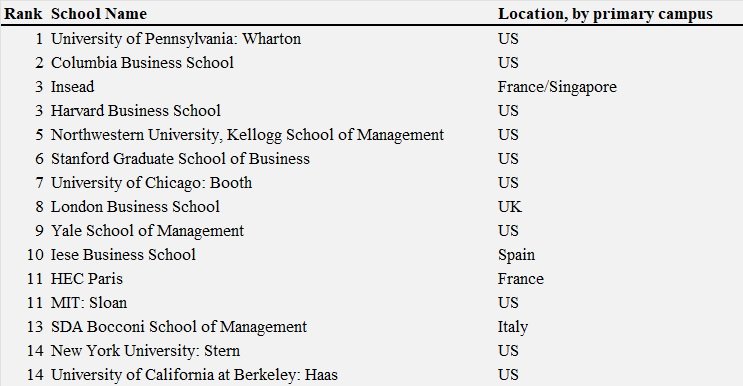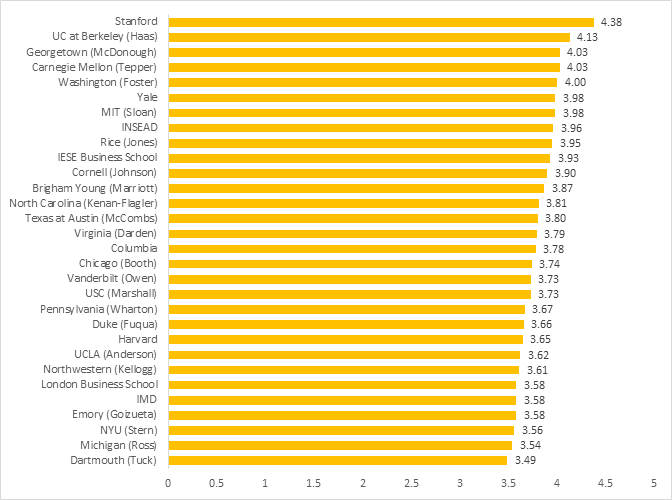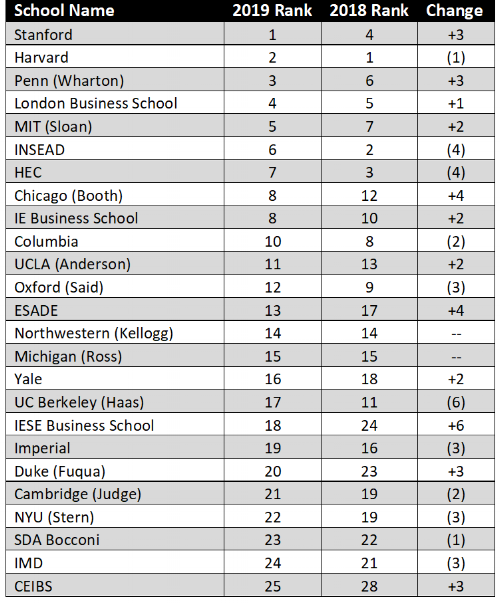The 2024 QS World University Rankings for Business and Management studies named Harvard University as the premiere institution for studying business. INSEAD (France) and the London Business School followed Harvard, while Stanford University and MIT ranked fourth and fifth, respectively. The top five ranked universities did not change from 2023.
QS bases its business school rankings on an aggregate of four indicators: academic reputation, employer reputation, research citations per paper, and H-indices (a measure of the productivity and impact of a university department’s research). Harvard’s top ranking stemmed from a perfect score (100) on the employer reputation indicator, and a near-perfect score (98.4) on academic reputation. INSEAD received a perfect score for academic reputation while London Business School fell just short of perfect with an academic reputation score of 99.1.
The University of Pennsylvania was the final U.S. school to rank in the top ten, taking the seventh spot. In total, ten of the top 25 programs were U.S.-based programs. Below, we’ve listed the top ten, and the U.S.-based schools ranked in the top 50. Check out the full ranking here.
Top Ten:
1. Harvard University
2. INSEAD, France
3. London Business School, United Kingdom
4. Stanford University
5. Massachusetts Institute of Technology (MIT)
6. University of Oxford, United Kingdom
7. University of Pennsylvania
8. University of Cambridge, United Kingdom
9. Bocconi University, Italy
10. National University of Singapore (NUS), Singapore
U.S.-based Schools Ranked in the Top 50:
13. University of California, Berkeley
15. New York University (NYU)
16. University of Chicago
17. Northwestern University
20. Columbia University
25. Yale University
33. University of Michigan, Ann Arbor
37. University of California, Los Angeles
38. Cornell University














